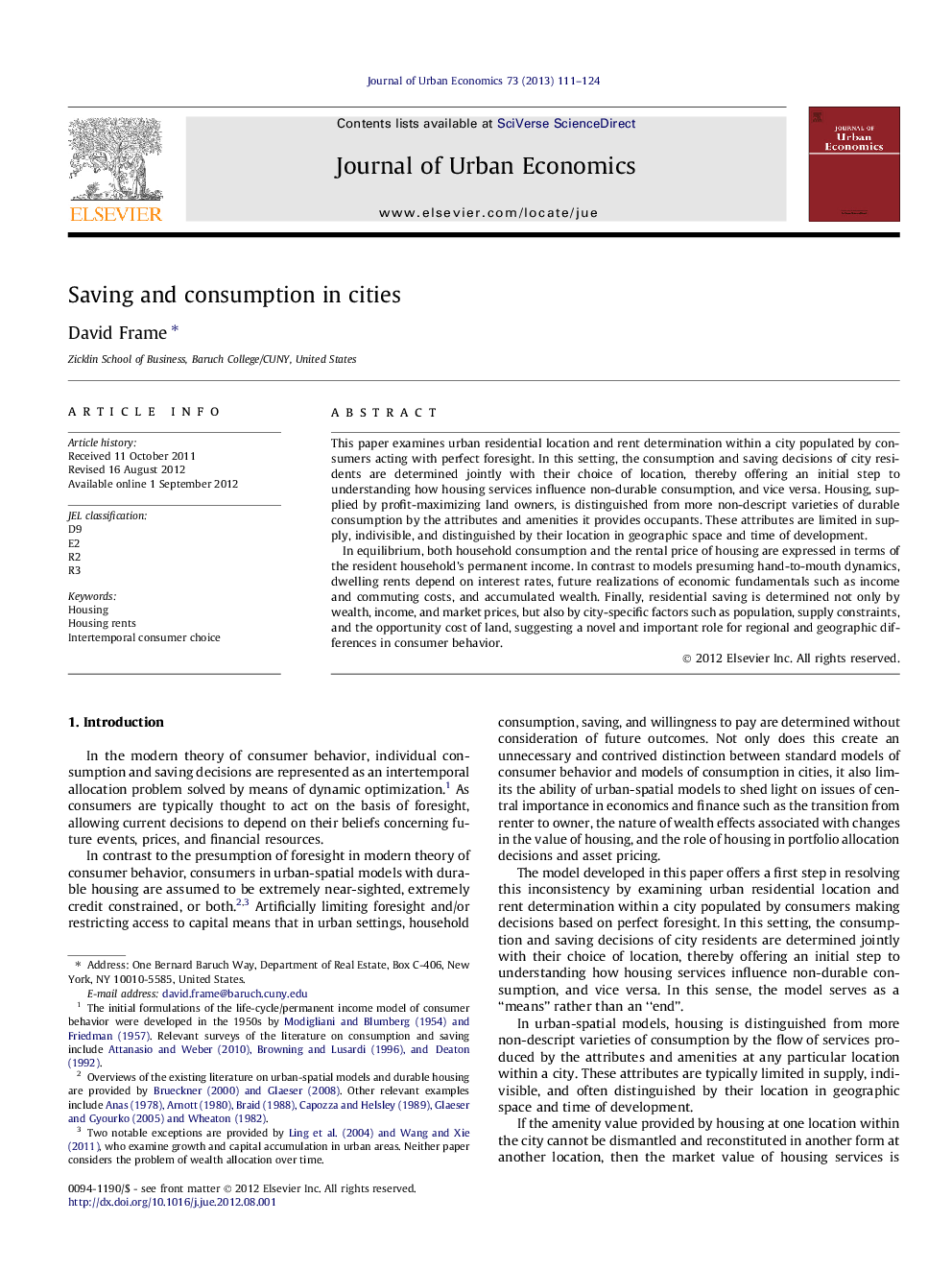| Article ID | Journal | Published Year | Pages | File Type |
|---|---|---|---|---|
| 970832 | Journal of Urban Economics | 2013 | 14 Pages |
This paper examines urban residential location and rent determination within a city populated by consumers acting with perfect foresight. In this setting, the consumption and saving decisions of city residents are determined jointly with their choice of location, thereby offering an initial step to understanding how housing services influence non-durable consumption, and vice versa. Housing, supplied by profit-maximizing land owners, is distinguished from more non-descript varieties of durable consumption by the attributes and amenities it provides occupants. These attributes are limited in supply, indivisible, and distinguished by their location in geographic space and time of development.In equilibrium, both household consumption and the rental price of housing are expressed in terms of the resident household’s permanent income. In contrast to models presuming hand-to-mouth dynamics, dwelling rents depend on interest rates, future realizations of economic fundamentals such as income and commuting costs, and accumulated wealth. Finally, residential saving is determined not only by wealth, income, and market prices, but also by city-specific factors such as population, supply constraints, and the opportunity cost of land, suggesting a novel and important role for regional and geographic differences in consumer behavior.
